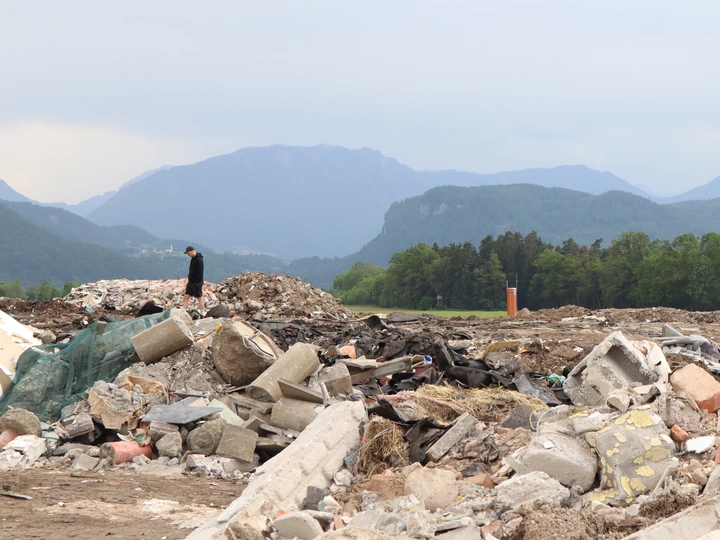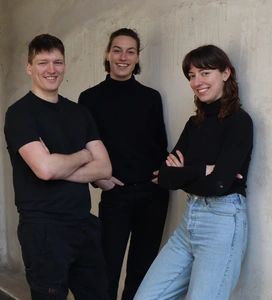following material agency

Martin Kohlbauer
Luisa Zwetkow
studio dreiSt. is an architectural collective founded by Martin Kohlbauer, Sophie Coqui and Luisa Zwetkow. Coming from an architectural background, their interest lays in questioning the current design and building practice by following material agency. Their work is grounded in a process-oriented, hands-on approach that embraces reuse, improvisation, and collaboration across disciplines. Rather than imposing form, they allow materials, context, and collective knowledge to shape the outcome.
The 2024 Vienna Design Week project, Biofabrique Kantine, demonstrates their approach by repurposing urban waste into architectural components. It critiques the linear use of resources and explores scalable strategies for circular construction. Using the experimental recipes from Biofabrique Vienna, the materials were transformed into elements designed for disassembly without destruction. Designed with a form-fitting connection like a lego brick, the Carbo Brick was adapted for short-term use during the festival enabling reuse. Achieving this with a prototype material requires frequent action and reaction during design and testing until a satisfactory result is achieved. Experimenting and working hands-on with the materials allows to follow the materials guidelines and to design hand in hand with the material itself. This bioregional method with focus on ressource availabilty and adaptability makes a statement for a new way of building.
We never begin from scratch. Our practice emerged from a growing discomfort with architecture’s extractive habits. Confronted by the scale of urban waste, we stopped treating the city as a blank canvas. Instead, we began listening to what had been overlooked. Matter became a collaborator, not a resource. We realized: architecture should not be a clean act of creation, but a growing process - more like fermentation than fabrication.
The Biofabrique Kantine exemplifies this approach. Developed in collaboration with students and industry partners, it served as a functioning café and public forum at the Vienna Design Week. The project was shaped by participatory prototyping, material testing, and on-site experimentation. Our team managed the full process: from resource mapping and material development to spatial design and construction logistics. The result is a circular, demountable system built from urban and agricultural waste.
We are questioning the architect’s role and try to shift it toward being facilitators, curators, fermenters. Turning away from linear processes, we try to generate an open process by transferring four values: consciousness, care, collaboration and curation. We start by being aware of what is defined as waste and what becomes of material once it leaves the site. Fostering a relationship with the material, by taking care and reading it, while creating a tacit knowledge. While doing so we connect material, people and infrastructure to collaborate and learn from each other. Curation then brings together what emerged, assembling piece by piece.
Looking ahead, we aim to scale our method not by replicating forms. We ask how cities might grow through what already exists, how infrastructures could support relationships over extraction, and design could move from performance to enablement. We are not starting from scratch, but starting again and again, with what the world offers, what has been overlooked, left behind or waiting to emerge.
